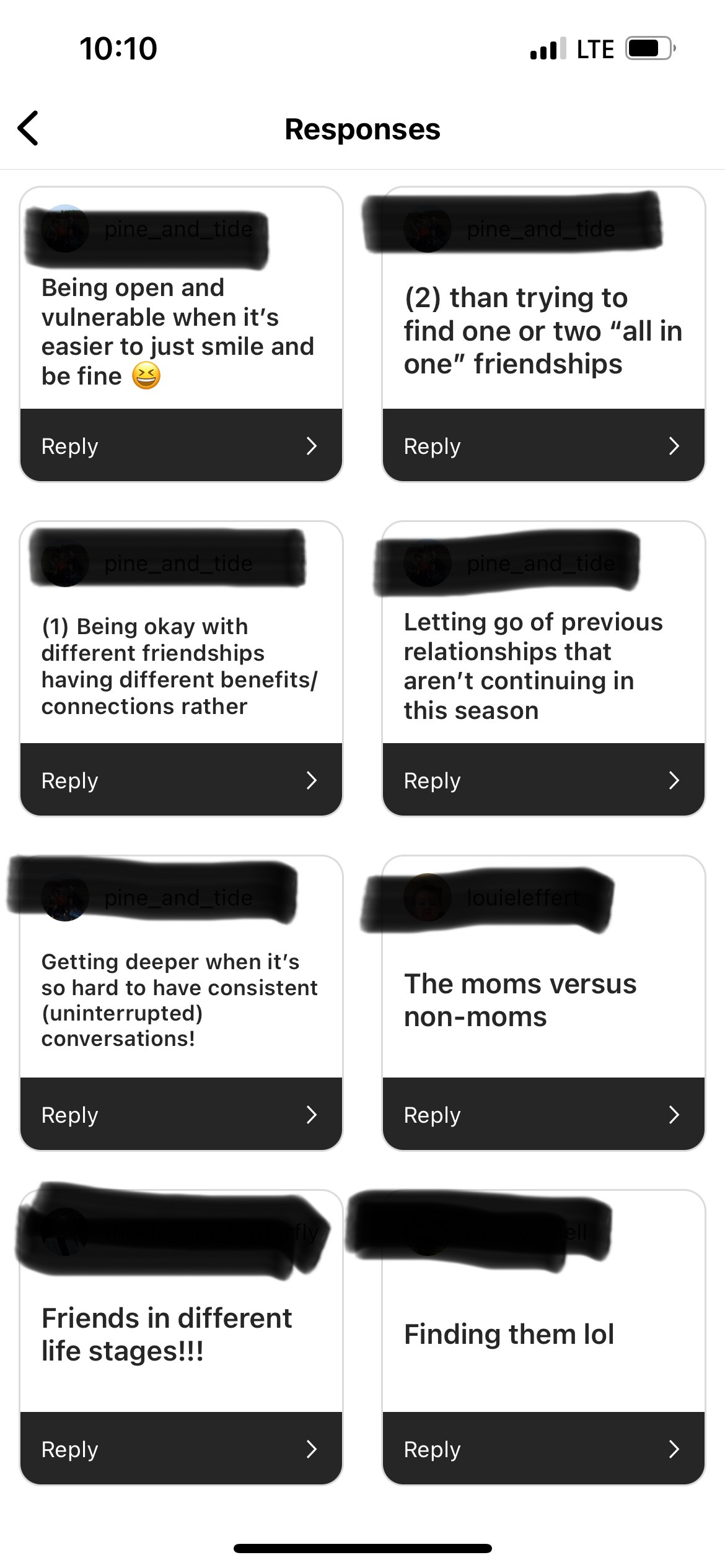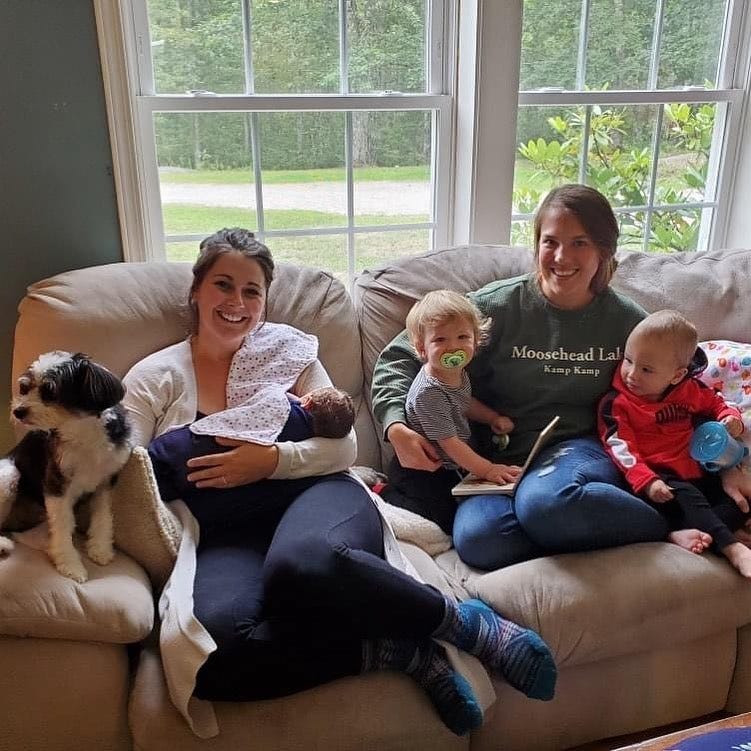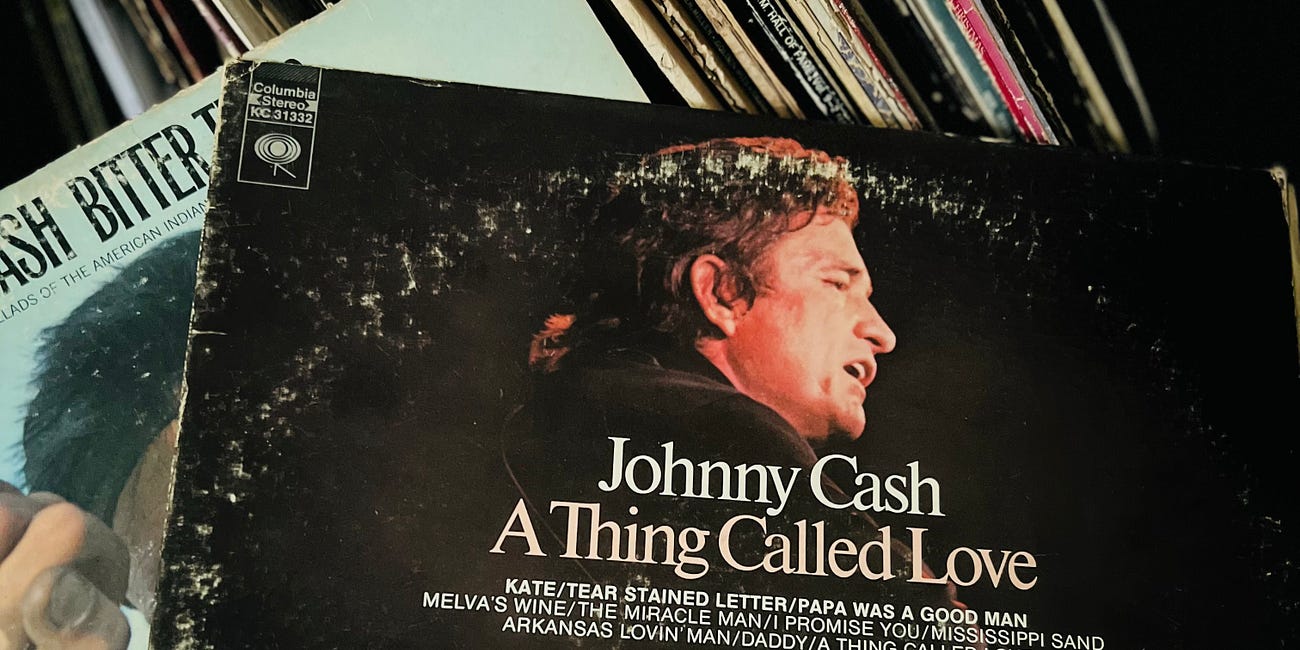Friendship, That Lovely Painful Thing
Thoughts on what we can do when friendship is hard
Friendship. It’s a finicky, ever-evolving thing.
Generally, I just like to leave it at that. I understand it’s got a complex nature, and I understand that it will always be in flux, depending on jobs and babies and marriages and travels and sick families and all the other spoken and unspoken things.
But every so often, I get assaulted with some horrible feeling related to friendship. Think jealousy, insecurity, bitterness, or—a personal favorite—a disquieting sense of ‘Otherness.’
When this happens, my tendency is to do one of two things:
To get painfully self-righteous. [I have done absolutely nothing to deserve this! I have always been kind! Does {insert name} even know how much I’ve done for them? And to be treated this way!]
OR
To begin to question everything about myself and fear that I’m actually the problem behind every relationship issue I’ve ever experienced.
[I saw a spectacularly unhelpful meme not long ago. It said something like, “Just remember that the common denominator in all your failed relationships is YOU.”
Yes, I thought, just the kind of pep talk that all we mortals needed!]
Regardless of my reaction du jour, though, the end result is the same:
I end up feeling isolated.
Just this week, I started to feel myself falling into this rabbit hole. First, I had an interaction with someone that left me feeling slighted. Later, I realized a friend had never responded to my invitation to get together (even though it had been over a week), and then before I knew it, I was washing my hair and lamenting every friend I’ve ever lost and questioning everything I’ve ever known about friendship.
Suddenly, I felt so very alone. And I know that alone is not a place I want to be (unless it’s by choice, of course, with coffee and a book and sweet, blessed silence). So I decided to conduct a little case study with my friends. I sat down and had coffee with one, sent a Marco Polo to a couple others, and asked a poll question on social media to a whole lot of others. And here’s what I discovered:
None of us are alone in having feelings of aloneness.
All of us—no matter our gender, age, marital status, career, number of children, Enneagram number—experience difficulties with our friendships, and those difficulties can make us feel isolated, confused, and sad.
Here’s a smattering of answers I received on Instagram in response to the question, “What challenges are you experiencing with friendship at this stage in your life?”
And that wasn’t all of it. From these responses, entire conversations blossomed. The hurts were different, the uncertainties varied, and the specific stories were unique, but there were these common threads:
We value friendship, we’ve been hurt by friendship at some point along the way, and we’re all a little bit baffled about how to navigate it from time to time.
I’m not here to tell you I know the answers to rocking friendship. I don’t. But I did make notes on what everyone was saying, and came up with a few takeaways from this little research study. They are things that we can remind ourselves when we begin to fall into the rabbit hole of self-righteousness or when we’re tempted to berate ourselves as ‘unworthy,’ and I hope that they’ll offer a more helpful, generous, and realistic perspective for difficult situations, instead.
Takeaway #1: We all come into friendships with different expectations for what friendship should look like.
A very specific piece of feedback that many people shared was that they feel like they are the ones constantly putting in the effort, with little return from their friends. They are the ones sending the text message check-ins, the ones dropping off cups of coffee, the ones organizing the meal trains and trying to put girls’ nights on the calendar. A few different people said, “I’m always the one reaching out. If I didn’t, I feel like I’d never see {that friend}.”
It’s so easy to feel disposable in this situation. I know that I’ve felt this way in similar situations. But if we look a little closer, we might find that our expectations of what friendship should look like are simply different than someone else’s.
For example, you might feel like close friends should talk everyday, but your friend might feel that an indicator of closeness is that you can go for long stretches of time without talking and still be ‘okay.’ In this situation, it would make sense that you’re the one always reaching out, and it’s entirely possible that you’re friend may not even know that it’s bothering you!
Takeaway #2: We can see people’s actions and hear their words, but we cannot see their inner complexities and motivations.
It’s so easy to ask questions like, “Why does she never include me in the group?” or “Why does he say things that hurt my feelings?” As humans who can’t read minds, we are forced to experience other people’s actions and words only at face value. We tend to make up for any remaining gaps in our understanding by filling them in with our own narratives, and often insert our own past experiences, insecurities, and fears into those stories.
When we do this, we make the mistake of thinking that others are thinking about us as much as we’re thinking about ourselves. In reality, relationships are complex and interconnected organisms, and they’re alive with unseen motivations, traumas, desires, worries, time constraints, and connections that we can’t possibly be privy to and that likely have little to do with us. While we may be a strand of these webs, there is simply so much that we cannot see and that we’ll probably never understand about the inner workings of the people around us.
Takeaway #3: Everyone is busy with their own lives. Most of the time, people’s actions and intentions are not unkind, but are rather the byproducts of their own distractions and demands.
There have been seasons in my life when I have not been able to be the kind of friend I’ve wanted to be. For various reasons (family obligations, illness, grief, overwhelm), I have gone through extended times when I’ve been hardly able to take care of myself, let alone nurture relationships with friends. And even though I mourned that, I had to let it go for a time.
It’s helpful to consider what we know about our friends’ current life situations. Did they recently have a baby? Are they caring for a sick parent? Are they battling a chronic health issue? Anxiety? Depression? Could they be having a difficult time in their marriage? Are they in a busy season at work?
When we begin to consider that their distance, silence, or distractedness may be the result of demanding situations in their lives and not a reflection of how they feel about us, we can put a hard stop on bitterness and insecurity and instead gain the capacity to approach our friends with gentle compassion.
I don’t think there’s a cure-all for the problems that arise within friendship. We live in a sticky world with broken people, and the truth is that sometimes people really are unkind or have bad intentions or hurt us without reason. And sometimes we, too, will contribute to the problem.
But I think the source of many friendship woes is really much more benign than we often believe. I think we *mostly* hurt each other without meaning to, and then—rather than talking about it—we harbor our self-righteousness or berate ourselves to death and, if we’re not careful, we begin to feel really quite alone.
So this is me saying one more time: we’re not alone in our feelings of aloneness. And that is such a reassuring thing; that there’s a sense of community even around the topic of struggling with community! This week, after spending so much time talking to you wonderful people about your hot takes on friendship, I realize all over again that we all share in this thing called ‘humanity,’ and that when we stop trying to hide it and instead come together around it, we can take the power out of our struggles and fear and turn them into topics of connection, instead.
I want to know: What aspects of friendship do YOU find challenging in your current season of life? How do you handle those? Please, share your wisdom!
Want more thoughts on friendship? Check out this one on the power of being vulnerable and keeping it real:
A Thousand Masks and Zero Friends
Ever heard the song A Boy Named Sue by Johnny Cash? It was a favorite in my household growing up [we had it on vinyl] and I remember singing along as a little girl and giggling at the lyrics and feeling so sorry for that boy named Sue, just a-kicking and a-gouging in the mud and the blood and the beer. Poor guy. He had to fight his whole life through, being a boy named Sue.






Making new friends as an adult is hard, but not as hard as maintaining friendships that are no longer working without feeling forced.
Letting go of old friends is not easy either and I have gone thru a couple phases in my life where I have had to grieve lost friendships. However, the new friends that I’ve eventually aligned with afterward are a beautiful reflection and reward for my own personal growth and complement my current life. I have so much gratitude for old friends and new! 💞